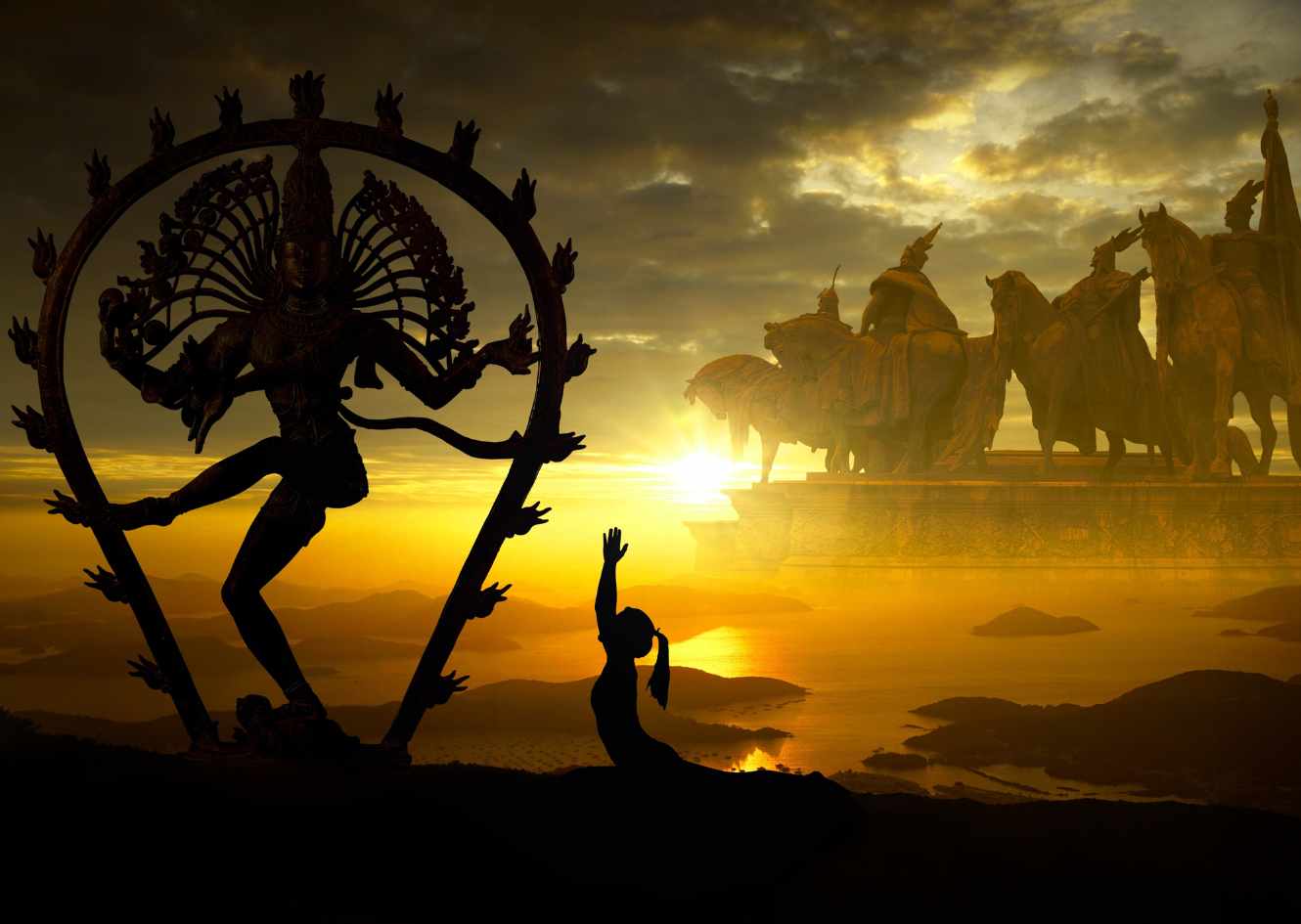Hinduism Is Gaining Universal Appeal In The West

One of the world’s oldest religions, Hinduism, is deeply embedded in the Indian subcontinent. However, over the past few centuries, its teachings, practices, and philosophies have transcended geographical boundaries, finding resonance with seekers and spiritual enthusiasts across the globe.
Hinduism’s journey beyond India can be traced back to ancient times. Trade, conquests, and exploration led to the spread of Hindu influence to Southeast Asia. The construction of Hindu temples in places like Cambodia, Indonesia (e.g., Prambanan and Borobudur), and Thailand stands testament to the religion’s ancient international footprint.
What Everyone Likes About Hinduism
Hinduism acknowledges multiple paths to the divine. The oft-quoted Sanskrit phrase, “Ekam sat vipra bahudha vadanti” (Truth is one; sages call it by different names), underscores the religion’s inherent acceptance of various beliefs and practices. Ancient Hindu scriptures like the Vedas, Upanishads, Bhagavad Gita, and Aranyakas are revered for their profound philosophical insights. They address fundamental human questions about existence, purpose, and the nature of reality.
With their vibrant rituals, music, dance, and colors, Hindu festivals celebrate life, nature, and the divine. Festivals like Diwali, Holi, and Navaratri have crossed cultural boundaries, being celebrated by non-Hindus around the world. Hinduism reveres nature and emphasizes the interconnectedness of all beings. Rivers, mountains, plants, and animals are often considered sacred and are integral to various rituals and stories. Rooted in the principle of Ahimsa (non-violence), many Hindus adopt vegetarianism. This aspect of this religion is respected, especially in contemporary discussions about animal rights and environmental sustainability.

The intricately carved temples, classical dance forms like Bharatanatyam and Kathak, and music genres like Carnatic and Hindustani showcase the religion’s contribution to global art and culture.
Ancient Hindu cosmological concepts, as mentioned in scriptures like the Puranas, resonate with some modern scientific theories. The vast time scales, cyclic nature of the universe, and the idea of multiple universes have intrigued scientists and enthusiasts alike.
Hinduism doesn’t actively proselytize, allowing people to explore its tenets at their own pace. Many are attracted to its open nature, where questioning is encouraged and personal experiences are valued. Given its decentralized structure, Hinduism is incredibly diverse. From the Shaivites to the Vaishnavites, from the Shaktas to the adherents of Vedanta, it encompasses a range of beliefs, practices, and rituals. Concepts like Dharma (duty/righteousness), Karma (action and its consequences), and Samsara (cycle of birth and death) offer moral frameworks that guide individuals in making ethical choices.
Modern Migration and Diaspora
The global spread of Hinduism in recent times can be largely attributed to migration. The Indian diaspora, moving for education, employment, or other reasons, has established thriving communities worldwide, bringing their cultural and religious practices with them. Countries such as the United States, Canada, the United Kingdom, Australia, and parts of Africa and the Caribbean have seen Hindu communities flourish, with temples, festivals, and educational institutions dedicated to the faith.
Yoga and Meditation
One of the most significant global ambassadors of Hinduism has been the practice of yoga. While yoga’s physical aspects have gained immense popularity for health and fitness, its philosophical and spiritual roots are deeply intertwined with Hinduism. Meditation, an integral part of Hindu spiritual practice, has also been embraced worldwide for its mental and spiritual benefits.
Global Gurus and Ashrams
Several spiritual leaders and gurus from India have played pivotal roles in disseminating Hindu teachings globally. Figures like Swami Vivekananda, Maharishi Mahesh Yogi, Paramahansa Yogananda, and, more recently, Sadhguru have attracted followers from diverse backgrounds and nationalities. These leaders have established ashrams and spiritual centers worldwide, offering teachings, retreats, and workshops rooted in Hindu philosophy.
The rise in interfaith dialogues and the study of comparative religions in academic institutions has furthered the understanding and appreciation of Hinduism. Through such platforms, commonalities between religions are highlighted, and the inclusive nature of Hinduism, with its acceptance of multiple paths to the divine, has resonated with many.
Pop Culture and Media
Through films, music, literature, and art, mainstream media and pop culture have played their part in familiarizing global audiences with Hindu symbols, stories, and festivals. The depiction might only sometimes be comprehensive or accurate, but it has certainly piqued my curiosity.
The global adoption of Hinduism underscores its universal appeal and the human quest for spiritual understanding. Its core principles, emphasizing Dharma (righteousness), unity in diversity, and the interconnectedness of all beings, have found resonance across cultures and continents. While the spread of Hinduism has enriched the global tapestry of faith and philosophy, it also underscores the importance of preserving the authenticity and depth of its teachings in an ever-globalizing world.
